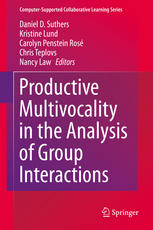

Most ebook files are in PDF format, so you can easily read them using various software such as Foxit Reader or directly on the Google Chrome browser.
Some ebook files are released by publishers in other formats such as .awz, .mobi, .epub, .fb2, etc. You may need to install specific software to read these formats on mobile/PC, such as Calibre.
Please read the tutorial at this link: https://ebookbell.com/faq
We offer FREE conversion to the popular formats you request; however, this may take some time. Therefore, right after payment, please email us, and we will try to provide the service as quickly as possible.
For some exceptional file formats or broken links (if any), please refrain from opening any disputes. Instead, email us first, and we will try to assist within a maximum of 6 hours.
EbookBell Team

4.8
44 reviewsThe key idea of the book is that scientific and practical advances can be obtained if researchers working in traditions that have been assumed to be mutually incompatible make a real effort to engage in dialogue with each other, comparing and contrasting their understandings of a given phenomenon and how these different understandings can either complement or mutually elaborate on each other. This key idea applies to many fields, particularly in the social and behavioral sciences, as well as education and computer science. The book shows how we have achieved this by presenting our study of collaborative learning during the course of a four-year project. Through a series of five workshops involving dozens of researchers, the 37 editors and authors involved in this project studied and reported on collaborative learning, technology enhanced learning, and cooperative work. The authors share an interest in understanding group interactions, but approach this topic from a variety of traditional disciplinary homes and theoretical and methodological traditions. This allows the book to be of use to researchers in many different fields and with many different goals and agendas.